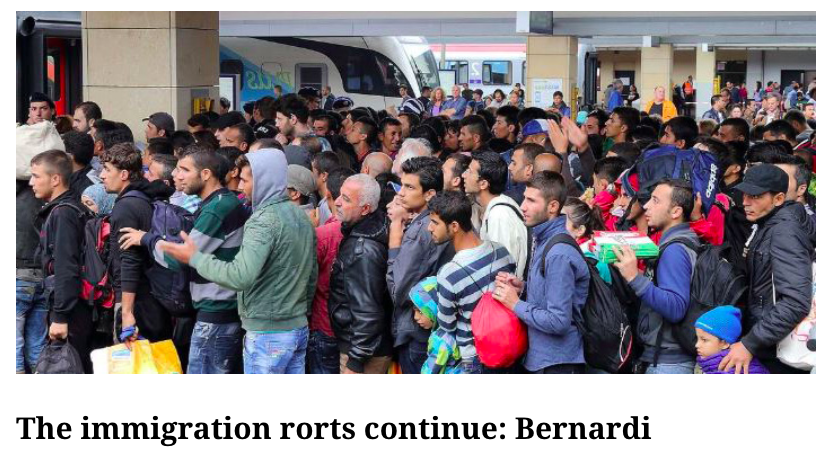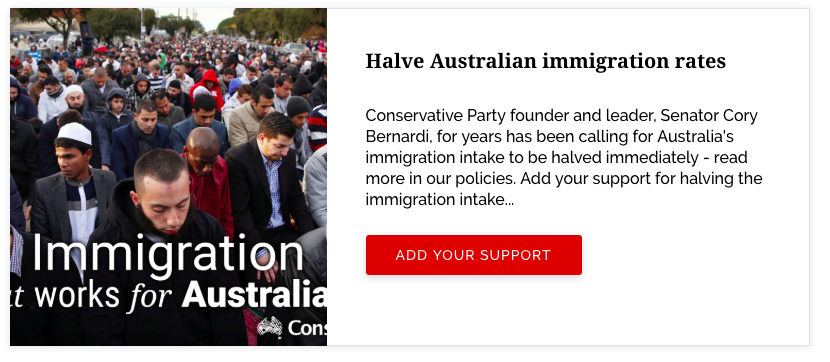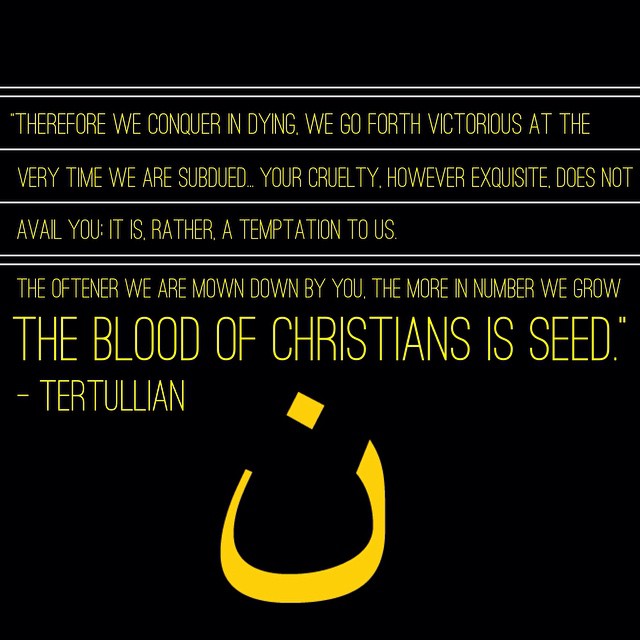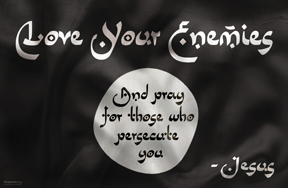Here are eleven things that are interesting and more connected than you might think that have happened in the last few months.
- A radicalised white man from Australia, with European heritage, walked into a mosque in Christchurch during prayer time and shot 51 people dead (the death toll rose 6 days ago).
- The Prime Minister of New Zealand, an atheist (who grew up Mormon) in an expression of solidarity with the Muslim community wore a hijab and called for a united vision of what it means to be human and thus, a citizen of New Zealand, built around unity and compassion.
- Polynesian Rugby Union player Israel Folau instagrammed a meme that says “Hell awaits homosexuals (and several other categories of sinner lifted from the New Testament). Several Polynesian Rugby Union players find themselves embroiled in the controversy for liking Folau’s Instagram post. “Tongan Thor” a fellow Wallaby, makes a statement that the ARU might as well sack all Polynesian players who share Folau’s views.
- The Australian Rugby Union, in partnership with major sponsor, Qantas, who embody a certain sort of corporate social activism (the sort where you throw your weight around on social issues locally, to turn a dollar, but also partner with nationalised airlines from around the world from regimes that kill homosexuals, also to turn a dollar), threatened to sack Folau, and are now most of the way through their internal proceedings to achieve that outcome. They say the tweet goes against their inclusion policy (which includes sexuality, ethnic background, and religion), and that he should thus be excluded. The NRL and its managing figures pre-emptively expressed the view that Folau would also not be re-welcomed, or included, should he cross codes again. A few people make the observation that religion and ethnicity are deeply intertwined in the Polynesian experience and identity (including me, Stephen McAlpine, and a gay polynesian journalist), some of us asking questions about the legitimacy of corporate, white, upper class people ruling on the validity of opinions expressed from an identity outside their experience, in the name of “inclusion.” Anthony Mundine condemns the treatment of Folau as racist.
- Journalists reporting on the Folau story consistently ‘mediate’ it to the wider populace reinforcing the narrative of the harm Folau’s posts do to the gay community, but making fundamental errors about Folau’s religious commitment, some including photos of Folau in front of a Mormon temple as though that is still his religion, others unable to reconcile his actions in support of gay inclusion on the football field with his theological beliefs, others calling protestant church services ‘mass’, all while arguing that this is a critical moment in the conversation about religious freedom in the post-Christian west, specifically in Australia.
- Bombings in Sri Lanka target worshippers in church for Easter services, those condemning the attacks, from the ‘post-religious’ west (specifically from America) call the victims gathered in church ‘Easter Worshippers’ rather than Christians, leading to several conspiracy theories about sinister motives.
- New Zealand Prime Minister, and former Mormon, Jacinda Ardern, condemned Folau, another former Mormon, who is married to a New Zealand representative netball player.
- Former Wallabies coach, turned media personality, Alan Jones, and a bunch of other media commentators, have made this case a religious freedom and freedom of speech case.
- Former Wallabies player (under Jones), turned media personality and proud/belligerent atheist, Peter Fitzsimmons has been prosecuting the case against Folau on the basis that his tweets “vilify” the gay community and that the spectre of hell and judgment from religious players (in the junior ranks) contribute to the suicide rate amongst gay teenagers. He writes an article scoffing at religious freedom arguments, and projecting his particular views about the substance and meaning of Folau’s religious beliefs (specifically his position on Hell) into the situation; other journalists and media opinion shapers (not always journalists) express bewilderment that Folau would say such obviously hurtful things.
- Former Wallabies captain, Nick Farr Jones, also a Christian, meets with Israel Folau to encourage him to apologise, and comes away supporting Folau’s character and intent. Suggesting he is not homophobic and has been misunderstood by the public at large, and by the administrators at the ARU.
- The Australian Christian Lobby produce an election checklist for the upcoming Federal Election in Australia that essentially endorses the Australian Conservatives and One Nation on the basis of a five issue platform, and justify the elevation of One Nation on the basis of the access they give to Christian voices into the political process.
Before I try to weave a thread or two between these events, it’s clear that life in the modern west is still complicated, and despite aggressive secularisation theories, religion is still part of the fabric of life — public life even — in the west. It’s clear that modern life is super complex, and the intersection and overlap between different systems of religious belief and the modern western world is a pretty difficult thing to get your head around. It’s also clear that the western, post-Christian, world simply does not understand the nature of the religious belief it finds itself removed from. The reason people (like Jacinda Ardern, or Peter Fitzsimmons — though I’m less sure of his background) move from some sort of religious conviction or upbringing, to non-religious convictions, does not always seem to include a robust understanding of what is left behind not just from particular religious belief or expression, but from the view of the world that comes with the belief of God or gods. The modern, secular, post-religious, west — and by that I mean the section of the world deeply influenced by the European experience — including Canada, the United States, and Australia (and who knows if European includes England anymore, but for now they’re in that label) — no longer has the categories embedded in our “social imaginary” (as Charles Taylor calls it) or shared architecture for understanding religious beliefs and conversations. By this I mean that conversations that happen amongst people who do not share basic foundational views of the world (religious or non-religious) no longer have the shared scaffolding embedded in those conversations as the framework we use to give words meaning and significance. When a religious footballer tweets about hell, and its significance, a post-religious or non-religious journalist, opinion columnist, or ‘mediator of the public square’ is not equipped to substantially understand what is meant; but neither is a member of the gay community (or any other community targeted by such a post). This is as true of Alan Jones and his making this issue about “freedom of speech” as it is Peter Fitzsimmons and his making the issue about vilification of vulnerable people in gay community.
There’s a fascinating sub-thread around the different way the post-Christian world understands ‘our’ western religious heritage, Christianity (or assume we do), such that it gets misrepresented and treated as a ‘thin’ conviction where you just tick a box in the census and get on with life, and you might be an ‘Easter worshipper’ and how our mediating institutions (the media and politicians, especially post-religious politicians) engage with the non-western, Muslim, experience (fascinating too, that Anthony Mundine, an indigenous Aussie convert to Islam, defies the easy categorisation our media is comfortable with, so that his comments about race can be more readily dismissed as conspiracy). I’ve noted elsewhere that it was interesting seeing how this idea that religion is like a bit of clothing, bling, or flair, that you add to your expression, or performance, of your self, might play out with politicians wearing religious garb in ‘solidarity’ — while, actually, the deep and thick religious convictions of Muslims is actually more directly related to the experience of the deep and thick religious convictions of Christians. A ‘religious’ view of the world — one where the world is not a ‘closed system’ of material reality, but where there’s a spiritual reality or an ‘enchanted’ overlay on our everyday lives — is one we share in common, and one still commonly shared outside the western world; it’s the majority view of the world presently, and historically, and so the onus should actually lie on those in the west who want to exclude religious convictions about spiritual matters from public conversations because of their material effects, but somehow, at least in the west, this has flipped around so that religious people have to justify our place at the table in public conversations, and then the inclusion of ‘spiritual’ or ‘non-secular’ views in the conversation. This is a game we’ve now played for so long as Christians in the secular west that we’ve mostly forgotten alternatives and our titular ‘Christian Lobby’ have so thoroughly adopted the rules of the game that they create ‘political tools’ during election season that are meant to pry open the doors to the table not to make religious arguments about a wide range of policies, but to preserve our space in the world.
How we understand the cause of ‘secularisation’ in the western world, or why we’re ‘post Christian’ (or post-religious) will shape how we understand what is happening in every one of those threads. There are two thinkers I think give us pretty good grounds for understanding the landscape here. Canadian philosopher Charles Taylor, whose A Secular Age I’ve often quoted here, and C.S Lewis. Lewis’ academic magnum opus was a book called The Discarded Image, it’s an account of how the religious backcloth of the medieval world — where all art and stories and life itself were ‘shot through’ with supernatural significance — has been abandoned in favour of a more mechanical, finite, view of reality. In his first lecture at Cambridge University, Lewis accounted for the decline of religious belief in the modern west as, in part, a turn to a more mechanical experience of life. I’ll quote him at length, because I think it’s great.
I have already argued that this change surpasses that which Europe underwent at its conversion. It is hard to have patience with those Jeremiahs, in Press or pulpit, who warn us that we are “relapsing into Paganism”. It might be rather fun if we were. It would be pleasant to see some future Prime Minister trying to kill a large and lively milk-white bull in Westminster Hall. But we shan’t. What lurks behind such idle prophecies, if they are anything but careless language, is the false idea that the historical process allows mere reversal; that Europe can come out of Christianity “by the same door as in she went” and find herself back where she was. It is not what happens. A post-Christian man is not a Pagan; you might as well think that a married woman recovers her virginity by divorce. The post-Christian is cut off from the Christian past and therefore doubly from the Pagan past.Lastly, I play my trump card. Between Jane Austen and us, but not between her and Shakespeare, Chaucer, Alfred, Virgil, Homer, or the Pharaohs, comes the birth of the machines. This lifts us at once into a region of change far above all that we have hitherto considered. For this is parallel to the great changes by which we divide epochs of pre-history. This is on a level with the change from stone to bronze, or from a pastoral to an agricultural economy. It alters Man’s place in nature. The theme has been celebrated till we are all sick of it, so I will here say nothing about its economic and social consequences, immeasurable though they are. What concerns us more is its psychological effect. How has it come about that we use the highly emotive word “stagnation”, with all its malodorous and malarial overtones, for what other ages would have called “permanence”? Why does the word “primitive” at once suggest to us clumsiness, inefficiency, barbarity? When our ancestors talked of the primitive church or the primitive purity of our constitution they meant nothing of that sort.”“But I submit that what has imposed this climate of opinion so firmly on the human mind is a new archetypal image. It is the image of old machines being superseded by new and better ones. For in the world of machines the new most often really is better and the primitive really is the clumsy. For in the world of machines the new most often really is better and the primitive really is the clumsy. And this image, potent in all our minds, reigns almost without rival in the minds of the uneducated. For to them, after their marriage and the births of their children, the very milestones of life are technical advances. From the old push-bike to the motor-bike and thence to the little car; from gramophone to radio and from radio to television; from the range to the stove; these are the very stages of their pilgrimage. But whether from this cause or from some other, assuredly that approach to life which has left these footprints on our language is the thing that separates us most sharply from our ancestors and whose absence would strike us as most alien if we could return to their world. Conversely, our assumption that everything is provisional and soon to be superseded, that the attainment of goods we have never yet had, rather than the defence and conservation of those we have already, is the cardinal business of life, would most shock and bewilder them if they could visit ours.”
This maps neatly, with a few interesting insights, onto Taylor’s secularisation theory. In a short, Taylor describes the move towards secularisation as we experience it in the west as not just being about the rise of science, or modernity, but also the subtraction of a sense of a God who provides a cosmic ordering; we’ve turned from an ‘enchanted’ or religious view of reality — a backdrop where talking about angels and hell makes sense, and operates with certain shared understandings about reality, to a disenchanted world, where belief is contested but the default is a closed version of what he calls the ‘immanent frame’ — a view of the world that excludes God or gods from the picture, and so makes conversations about hell purely about how we treat one another here and now (and so the conversation in the secular media is, understandably, just about the impact of Folau’s words and his ‘villification’ of a vulnerable community; we don’t have to parse out what belief that a certain sort of behaviour leads to Hell if we don’t believe in Hell). Taylor also says it isn’t just ‘science’ that has done away with religion, and that, in part, the impulse comes from our visions of ‘fullness’ or the good life shifting away from God or from being characters in an ‘enchanted cosmos’… part of the deconversion stories of Ardern, and the aggressive atheism of Fitzsimmons, isn’t just ‘science disproves God’ but ‘the full human life doesn’t lie with an ancient conception of God.’
If Lewis and Taylor are right the West operates with this belief about progress, that it involves leaving Christianity behind, that it’s driven by a machine like, or ‘disenchanted’ view of reality, but this is supported by technological advances and the way they fuel a ‘progress’ narrative that celebrates the new and denigrates the old.
Cory Bernadi from the Australian Conservatives, the party most heartily endorsed by the ACL, has been beating the anti-immigration drum for a while, and while it’s not specifically targeted racially in the words in this particular article, check out the images that support those words.
“The Conservative Party has long called for a halving of Australia’s immigration rate along with a radical reform of all of the visa, immigration and welfare rorts that allow hundreds of thousands more people into the country every year, initially on visas for education and employment.”


There’s also a strange sort of dog-whistling thing going on in Bernadi’s ‘condemnation’ of Fraser Anning’s maiden speech. At this link there are significant chunks of search-engine recognisable quotes from Anning’s speech followed by a non-search engine recognisable video file where Bernadi specifically rejects the White Australia policy. But who can forget Pauline Hanson’s famous 2017 remarks about Islam. Here’s a reminder:
“Let me put it in this analogy – we have a disease, we vaccinate ourselves against it, Islam is a disease; we need to vaccinate ourselves against that.” — Pauline Hanson, One Nation
And remember. These are the parties the Australian Christian Lobby are suggesting we vote for to uphold freedom of speech and to make sure we Christians don’t further lose political influence or a place in society, or even so that our beliefs and convictions about the world are both free to be expressed and more likely to be understood. Make of that what you will, except, recognise that the way we white western people might come at these remarks, in a climate where a white, western person spouting a sort of European ideology, shot people he differed from dead in a place of prayer (and more recently, a member of a Reformed church in the United States opened fire in a synagogue). We’ve got to realise that the ‘disenchanting’ of language includes the de-spiritualising of the significance of words like ‘hell’; it flattens reality so that all battles for truth and supremacy are fought in real time and real space, not just left in the hands of something more cosmic (which isn’t to say that an enchanted view of the world doesn’t produce ‘holy war’ — see the Crusades — but that unholy war is equally terrible and a path to piece might be recognising the potential to sit at a common ‘civic’ table while maintaining our own religious ones in our more sacred spaces).
Here’s my controversial thesis — despite the western world having Christian heritage, such that many of the things we know and love in the west are directly the result of Christianity being practised as a thick religious conviction against a shared consensus that there’s a spiritual dimension to reality, part of dismissing that reality as we turned to a harder secularism in the west means no longer understanding the convictions that drive religious people; no longer recognising the links between belief and action, and severing ourselves, as a society, from the roots that have produced and sustained life. Those roots are pre-western, not western. Those roots are from first century Jerusalem (having come from the ‘BC’ era in a particular part of the non-western world. The way we Christians see the world has much more in common with our Muslim neighbours than our post-Christian, hard-secular neighbours who are now trying to set the rules by which we all live together — including people who live together in religious disagreement. If we want Christianity to truly have a place at the table in the public square we don’t need a whiter, more European, Australia — we need a more multicultural, non-western, religious, table. We need the ‘Asian century’; we need ‘more migration’ from outside of secular Europe, and we need to keep confronting the reality that we aren’t citizens of a western country that gets everything right in pursuit of liberation and progress — fuelled by the infallible churches of capitalism and liberal democracy and the ex cathedra announcements of their popes and mediators (a priestly media), otherwise the deck is stacked, and will become increasingly stacked, against an enchanted view of the world, where one can talk about hell or judgment or spirituality without only being heard on the basis those words might have on other people in the ‘here and now’. The advice to vote for parties who are specifically arrayed against that vision of our nation won’t improve Christianity’s foothold in the west, but destroy it. Bring on non-western immigration — Christian, or otherwise — that’s our best chance at re-enchanting Australia’s vision of the world, and bringing a legitimate pluralism to our public conversations; we won’t get it while post-Christian ‘liberated’ progressive thinkers from the white establishment are setting the rules (or lobbying for them to change). Churches, then, have to get serious about training and platforming non-white, European, leaders who think in non-white, European ways about the world, and how to engage with the political process and public life.
There’s no going back to a purely European, western, ‘Christendom’ (and nor should we want that, probably). There’s very little chance of re-enchanting the western world from within; what it might take is the western world hearing voices from “without” — or bringing those voices and views in and hearing, clearly, about the convictions that drive and shape the majority world towards a different vision of progress. We might colonise other countries with democracy and capitalism, and modernity, but if it comes with the necessity of ‘disenchantment’ — of seeing this world as all there is — then I’m not sure how successful that will be, but we’ll also, essentially, be reprising the role of Satan in the garden, telling people who experience life in a world where God or gods exist as divine beings that they, and they alone, are divine — and all they should be concerned about is what can be grasped here and now.






